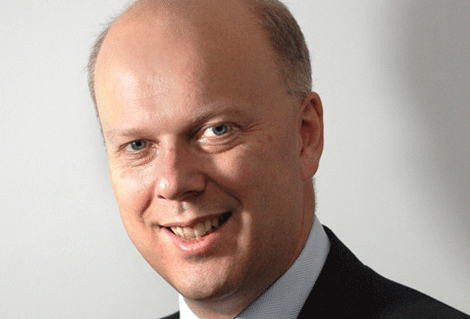14th July, 2010
Interesting to hear the Work and Pensions minister, Chris Grayling, on Radio 5 Live this morning, sympathising with the unemployed. He recognised things were tough out there and would be tougher, but he reckoned the private sector would, eventually, provide.
This is the absolute nub of the ConDem experiment, the sharp end of the debate about small versus big state.
The old Tory idea (which is what it is) that the state needs to be small in order for the private sector to thrive is based on two thoughts.
First, business doesn’t like bureaucracy. Sausages have to be a certain shape! Europe is bossing us about! Get rid of this red tape! Then business can thrive. That’s a crowd-pleaser. Not so much an economic argument, more a libertarian reflex.
The second thought is the posh one. It’s the idea that when the state spends, it borrows money. As it borrows “more and more” it needs to pay a better rate for its money, i.e. interest rates rise. That affects mortgages and, crucially, the price of money for business. Business cannot borrow, cannot invest, cannot hire. This is known as the crowding out argument.
(Hard-line subscribers even call private sector jobs “real” to distinguish them from [presumably unreal] public sector jobs; I noticed Chris Grayling slipping in a “real”, psychologically to upgrade these new jobs he’s hoping will materialise. Honestly! Perhaps we should all go round town with a badge to show whether we’re doing a real job or a phoney, state-sponsored one.)
When asked where the vital new jobs would come from, Chris Grayling replied, “I’m not a crystal ball-gazer.” He doesn’t know, and you can’t help feeling he’s happy with that; perhaps because the ‘real’ jobs are somehow only real when the minister for jobs has had nothing to do with creating them. Not knowing becomes almost a badge of honour – yet another articulation of the government’s deft, cheerful retreat from responsibility for anything or anyone.
Chris Grayling may not know where the jobs are coming from, but he has listened to reliable institutions like our friend the OBR and they say it’ll be all right. He went on to explain the crowding out argument. And that, pretty much was that. It’s hard for interviewers to argue against the crowding out argument. It’s capital E economics and it shuts people up.
But you don’t have to know your monetarism from your Keynesianism to know that we’re running a massive deficit in this country. And yet interest rates are virtually zero. Whatever is holding business back, it can’t be the rate of interest.
What really motivates business to invest is the whiff of profit. Sure, costs matter, and the cost of money matters. But it couldn’t be lower. What matters is sales. Are punters going to buy our product? Will they be spending? Will they have pounds in their pockets?
If punters are unemployed, or fiscally squeezed, or saving for a rainy day in the light of dire government warnings about broken Britain, they aren’t going to buy your product. No point investing, no matter how cheaply you can borrow money. If government, at the same time, is slashing its spending like it has never slashed before, there’ll be no public sector demand either. Time, you might decide, to pack up and go home.
That, in essence, is the debate. Of course it is much more sophisticated than that, and I don’t profess to be an economist. But I do know that the private sector is about people like you and me who spot the chance to make a buck – who see a market they can sell into. We are driven by opportunity. We do not notice that the price of money is low and then ask ourselves what business we might want to set up in order to take advantage of those nice low interest rates.
Forget the intellectual argument and ask yourself if you would invest in a new business in the UK at the moment. I know I would not.
I doubt Chris Grayling would either; when I listened to him trotting out the crowding out argument today, I didn’t think for a minute that he believed it.
The only crowding out that’s going on these days is the crowding out of reason and the shameless, cynical, oh-so-slick crowding out of responsibility.

